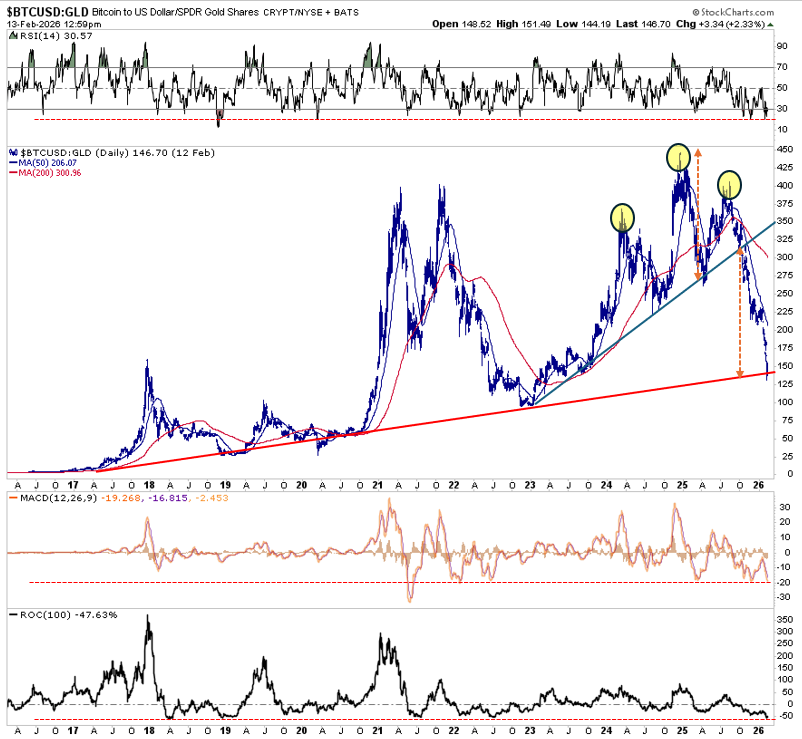Gentlemen:
I am writing to you in response to your Podcast #276. The first thing I want to say is—well done! You talked about economics and money for four hours and attracted over two million viewers. The monetary system faces grave problems and discussing them is important.
Purchasing Power and Yield Purchasing Power
Michael, you make a great point about the amount of capital needed to pay for retirement. You noted that at 5%, one needs $1 million worth of capital to generate $50,000 income. But when the interest rate drops to 0.5%, then the same bond that pays the same $50,000 a year rises to $10 million.
You are describing what I call Yield Purchasing Power. Most people think only of Purchasing Power as: how many years can you live by liquidating your capital? A million bucks lasts 20 years, at $50,000 a year. By contrast, Yield Purchasing Power asks how much capital is needed to earn $50,000. At 5% interest, $1 million in capital yields $50,000 a year forever. One should not consume capital, but invest it productively to earn a yield.
Bitcoin Has No Yield
But then you make the claim that bitcoin has a “massive yield.” Wrong. A rising price is not a yield. One must liquidate bitcoin in order to pay living expenses (though with a rising price, one’s capital lasts longer). And there’s another problem.
When you sell bitcoin at a higher price, your gain comes from the next speculator’s capital. Instead of investing in a million-dollar bond, this speculator might buy 33 bitcoins from you. You have, say, a $900,000 gain, which you spend.
Of course, the only reason he gave you his savings is that he hopes that the next speculator will give him $2 million. If that guy does it, it is because he hopes to get $4 million of the next-next speculator’s capital. And so on and so forth.
You correctly dismiss other cryptos by saying, “you can’t build a civilization on speculation”. And then you talk about bitcoin hitting $1 million, and even rising “forever”. I encourage you to reconcile these two ideas.
To be clear, I’m not saying not to buy bitcoin because it is immoral to receive the next speculator’s savings. I’m saying beware that you are forking over your own savings to the previous speculator.
The Gold Business No One Would Ever Build
Let’s turn to gold.
You claim it’s hard to mortgage the gold, but loans have long been available to gold owners, big and small.
And then you say “you can’t loan the gold,” and “no one’s going to create a business with your gold.”
I created that business, Michael. It’s called Monetary Metals.
Monetary Metals pays interest on gold, in gold. Not by betting that the price will rise, nor by lending to short sellers, betting that the price will fall. We finance businesses in gold and pay gold interest to investors out of the profits the business generates.
It is bitcoin which cannot be used to finance production. I do not refer to borrowing dollars with bitcoin pledged as collateral (which MicroStrategy is doing), or lending to speculators. Again, I refer to financing the production of real goods.
No business can borrow bitcoin. And you provided the clear case why not: bitcoin will skyrocket. Who would borrow something that skyrockets? Imagine borrowing $500,000 to buy a house, and then the mortgage skyrockets to $20 million. It’s the relative stability of dollars which makes them the most suitable money for financing.
Gold and Bitcoin Misconceptions
You also declare “most people wouldn’t store a billion dollars for a decade in gold.” They not only store a billion dollars of gold, they store over $11 trillion of gold. And not only for a decade, but for thousands of years.
Gold is different than bitcoin. People are happy to own gold, even without the promise of a rising price. They have demanded more gold—and gold miners have been producing more—for thousands of years. Gold is not consumed. Virtually every ounce ever produced is still in human hands, yet there’s never a glut. Bitcoin, by comparison, is capped at 21 million units, or else it would lose its value.
I said that the world faces a problem. Irredeemable currency is slowly failing. Central banks roil markets, usually drowning them in an ocean of dirt-cheap credit, then trying to dry them out. They have driven up the cost of retirement capital for decades. This forces people to turn to speculation, and hence capital consumption.
Lex: I am glad that your podcast reached so many people. If you would like to have someone present a gold counterpoint to bitcoin that isn’t just a discussion about which price will “go up” more, along with some new economic ideas, please let me know.
Sincerely,
Keith Weiner
Additional Resources for Earning Interest on Gold
If you’d like to learn more about how to earn interest on gold with Monetary Metals, check out the following resources:
In this paper we look at how conventional gold holdings stack up to Monetary Metals Investments, which offer a Yield on Gold, Paid in Gold®. We compare retail coins, vault storage, the popular ETF – GLD, and mining stocks against Monetary Metals’ True Gold Leases.
The Case for Gold Yield in Investment Portfolios
Adding gold to a diversified portfolio of assets reduces volatility and increases returns. But how much and what about the ongoing costs? What changes when gold pays a yield? This paper answers those questions using data going back to 1972.
Full story here Are you the author? Previous post See more for Next postTags: Blog,Featured,newsletter





































